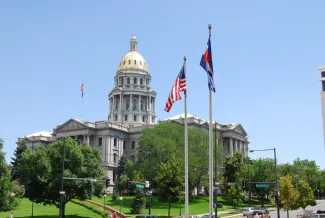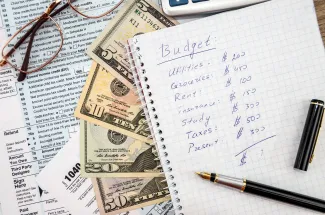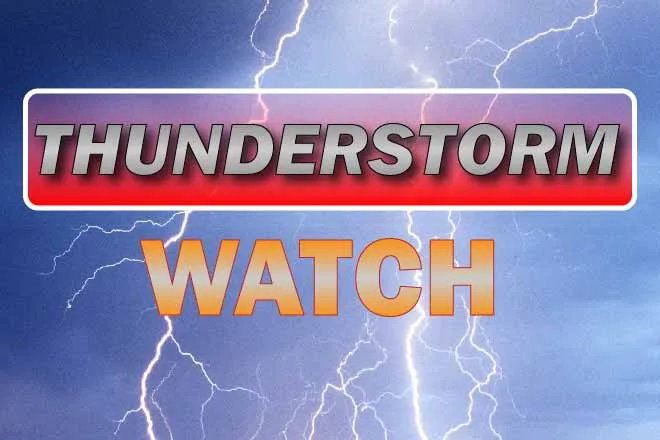
Colorado Legislature could meet in special session to consider more property tax relief
© iStock - Ligorko
(Colorado Newsline) Colorado Legislature could meet in special session to consider more property tax relief that could be considered during a possible special session, the same day a broad array of civic groups said they would support additional legislation that would keep a pair of property tax initiatives off the ballot in November.
“When I look at the numbers of the budgets, it is tight to begin with. And these initiatives make me even more worried about what the impact is,” Mark Ferrandino, the governor’s budget director, said. “And the long term, because it’s not a one-year impact. These reductions will be significant and long lasting.”

A special legislative session could occur later this month to cut property taxes further than lawmakers did in May. The potential deal with backers of the initiatives could stave off the ballot measures, which experts warn would be disastrous for local government revenue.
Analysts briefed members of the property tax commission — which was formed during a separate special session on property taxes last fall — on what the tax landscape looks like under Senate Bill 24-233, what it could look like if the two initiatives pass, and the outline of a potential compromise during a special session.
Together, ballot initiatives 50 and 108 would limit property tax collections and overall revenue growth. Initiative 50 would put a constitutional cap on annual statewide property tax growth. Initiative 108, which is undergoing signature verification and is not officially on the ballot yet, would lower the assessment rate used for property taxes and would result in $2.4 billion less collected in 2026, according to state economists.
Many lawmakers and other state leaders want to avoid the two initiatives’ passage, or prevent them from appearing on the ballot at all. If the Legislature convenes and passes more relief before the Sept. 6 deadline to withdraw initiatives, Michael Fields — who leads Advance Colorado, the conservative political nonprofit behind the initiatives — could pull them off the ballot.
“Initiatives 108 and 50 were created by advocates for statewide property tax relief efforts. Unfortunately, these initiatives go too far, swinging the pendulum from responsible reform to immense local budget reductions that threaten the delivery of vital local services,” Denver Mayor Mike Johnston, Aurora Mayor Mike Coffman and Colorado Springs Mayor Yemi Mobolade wrote in a joint letter to lawmakers, according to The Colorado Sun. “To mitigate these unintended consequences, we urge you to convene a special session to strengthen SB24-233 while maintaining key services upon which Colorado families depend.”
‘No assurances’
The bipartisan SB-233, passed in the last days of the most recent legislative session, was focused on mitigating the sharp increase in property taxes experienced by many Colorado homeowners. Negotiations at the time to remove the ballot initiatives failed.
Another letter, signed by social justice groups, business organizations, the state’s hospital association and education unions, urged lawmakers to meet in a special session to consider one narrow, limited bill to implement an agreed-upon deal.
A special session can be called by Governor Jared Polis or by a two-thirds vote of the Legislature.

Ferrandino outlined a deal that would cut the residential assessment rate for local governments further for the 2025 tax year to 6.25 percent. School district assessment rates would remain separate and fall to 7.05 percent.
Nonresidential assessment rates would drop to 25 percent in the 2027 tax year.
Growth limits for local government revenue would be capped at 10.5 percent over two years, and school districts would be limited to 12 percent growth over two years.
There is currently no backfill or reimbursement mechanism in the proposal.
“This seems like a good path forward to end, hopefully, the property tax battles, and de-risk the budget,” Ferrandino said.
The deal would mean that Advance Colorado and other groups wouldn’t bring property tax issues to the ballot for 10 years.
“Most of us don’t object to the policy. Most of us don’t even object to a special session, at least that’s what I’m hearing,” Summit County Commissioner Tamara Pogue said. “But I think what a lot of us object to is being here over and over again, and having no assurances whatsoever that we won’t be back here next June, having the same conversation about different ballot initiatives.”
Commissioners said they want to see a deal that is enforceable and valid, potentially in a legally-binding way.
“It is challenging to move forward when you don’t believe there is any way to guarantee that … the minute the governor signs this into law, then the letter (removing the initiatives) will be sent. We’ve got a chicken and egg problem here,” said Representative Cathy Kipp, a Democrat from Fort Collins who expressed her caucus’ lukewarm view on the proposal.
Polis reconvened the Legislature in special session last November to address rising property taxes following the failure of Proposition HH at the ballot box.
Colorado Newsline is part of States Newsroom, a nonprofit news network supported by grants and a coalition of donors as a 501c(3) public charity. Colorado Newsline maintains editorial independence. Contact Editor Quentin Young for questions: info@coloradonewsline.com. Follow Colorado Newsline on Facebook and X.
















